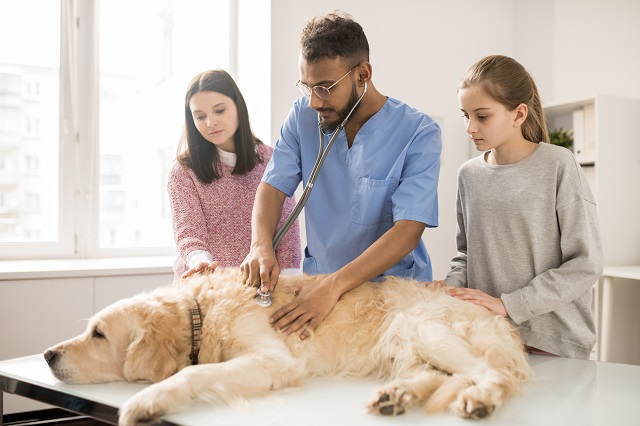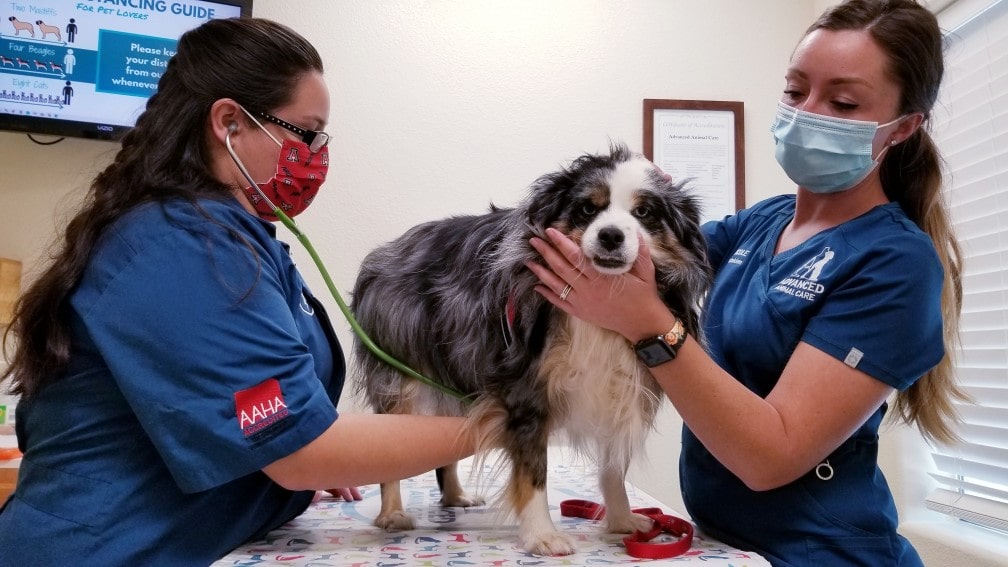Cough medicine is the best solution when dogs show cough and cold signs. But Western medicine may have some ingredients that could harm dogs. Even cough medicine prescribed by vets contains some harmful elements for the dog.
In this article, we will discuss the harmful factors of cough medicine. Moreover, we will tell you some easy and effective home remedies against cough and cold in dogs. Also, we explain the reason behind cough and cold.
Why Do Dogs Cough?
When dogs cough, we assume it is just a cold due to a drop in the temperature. Now that may not be the only reason. There are many bacteria and virus which causes cough and cold in dogs. However, all cold symptoms do not mean the dog has a cold.
Bacteria, viruses even allergies can develop a cough, cold, runny nose, and congestion. Sometimes, severe health conditions such as laryngeal paralysis, lung problem even heart diseases can be the reason for the cough.
So, the essential part is to find the reason behind it. That is why you need to track the symptom. Then, if it turns out to be worsening, immediately visit a vet for better options.
Why Giving Cough Medicine Isn’t a Good Idea?
Generally, when a dog starts to cough, the owner usually gives them cough medicine which consists of toxic elements. Those are harmful to them. Below are a few harmful elements.
Acetaminophen
It is an active pain reliever like Tylon. Excess usage can turn into acetaminophen poisoning. Usually, a problem appears when the dosage exceeds 100 mg/kg. Even a single dose can poison toy breeds or pups.
Ibuprofen
It is an effective medicine against pain and inflammation. However, it has a toxic effect on dogs. Symptoms appear like diarrhea, vomiting, abdominal pain, and appetite loss. A heavy dose even leads to renal failure, Ataxia (nervous system degeneration), Shock, Seizures, Coma, and Death.
Read Also: What to Feed Your Dog to Regain Health
Pseudoephedrine
It is a decongestant present in cold medicine. Excess usage symptoms are tremors, hyperactivity, and tachycardia.
Xylitol
It’s natural alcohol present in fruit, vegetable, and medicine. The symptom related to excess dosage is liver failure and hypoglycemia, even death.
Caffeine
Daytime boost medicine got caffeine which is very reactive to dogs. The side effects are seizures, vomiting, and hyperactivity.
Antihistamines
They consist of sedative effects used in allergies. The side effect on dogs can lead to long-term health problems.
Menthol
Menthol is present in drops and syrup. It’s not toxic against dogs but irritates the lungs and causes gastrointestinal upset.
Alcohol
Most cough and cold medicine consist of alcohol, that is quite harmful to the dog.
Artificial Color
Artificial color is added to medicines for a better look and feel. Unfortunately, it leads to allergies, cancer, and hyperactivity.
Read Also: Keep Your Dog’s Skin And Coat Healthy During The Winter
What about “Dog-Friendly” Cough Medicine?
Some cough medicines for dogs prescribed by vets are not safe for dog. Some of them contain dextromethorphan and guaifenesin.
Dextromethorphan
This medicine is used against hacking dry cough. However, it has some side effects, including diarrhea and nausea that can lead to shivering and seizures. It is not prescribed for dogs with chronic cough, liver diseases, or skin allergies.
Also, it is not for dogs to take Monoamine oxidase inhibitors. Other side effects are collapse, muscle tension, incoordination, abnormal eye movement, vomiting, decreased appetite, drowsiness, excessive drooling, and tachycardia.
Guaifenesin
It helps loosen mucus in the throat and chest. The side effects are muscle rigidity, hypothermia, ataxia, abnormal breathing, vomiting, increased heart rate, tremors, changes in blood pressure, and vision problems.
Cough Medicine Poisoning
Cough medicine poisoning happens due to accidental overdose, a bottle of medicine chewed by a dog, and hypersensitivity of dogs toward certain medications. Drug overdose due to cough medicine has symptoms like hallucinations, tremors, increased heart rate, nausea, vomiting, and nervousness.
Serotonin Syndrome in Dogs
Serotonin is produced inside our bodies. It is found in cough syrup as well. In the case of the dog, excessive serotonin can lead to vomiting, seizures, and coma, even if not treated to death.
5 Natural Remedies That Can Help With Your Dog’s Cold
The natural remedies which help to prevent your dog from cough and cold are:
Probiotics and Prebiotics
These are the healthy bacteria that are present in your dog’s guts. They help to reap health benefits. On the other hand, Prebiotic help in the development of SCFA, which helps in the growth of Probiotics in the guts.
Honey
Honey increases the immune system. Moreover, it’s effective against cold. It also clears your dog’s throat and coughs. It’s better to use love instead of drugs. Prescribed dosages are:
- Under 20 lbs. … ½ tsp. twice daily
- 20 to 60 lbs. … 1 tsp. twice daily
- 60 lbs. or more … 2 tsp. twice daily
Note: Don’t give honey to diabetic dogs.
Medicinal Mushrooms
The presence of antioxidants in mushrooms helps boost the dog’s immune system. Mushrooms help inhibit virus replication and growth, stimulating a cellular and humoral immune response, thus reducing cold symptoms and protecting against influenza. The best way to give the dog mushroom is through the mycelium-rich supplement.
Garlic
Garlic boosts the dog’s immune system due to the presence of allicin. For a 10 lbs. dog, give 1/3 tsp. of chopped garlic mixed with the food. It is very effective. However, it is not advisable for pregnant dogs and puppies.
Homeopathic Remedies
Homeopathic medicines are fast-acting and safe. For example, Rumex Crispus, Aconite, Drosera, and Spongia Tosta are effective medicines for cough and cold. Use a 30C or 200C potency.
Conclusion
Exploring natural alternatives to traditional cough medicine can be a beneficial approach when it comes to addressing coughing in dogs. The five alternatives discussed in this article offer effective remedies that prioritize your furry friend’s health and well-being. By opting for natural solutions, you can relieve your canine companion while minimizing the use of chemicals or medications. Remember to consult your veterinarian before trying new remedies, and always prioritize your dog’s comfort and safety.

 DogExpress
DogExpress





















 in Chandigarh, India.
in Chandigarh, India. 
